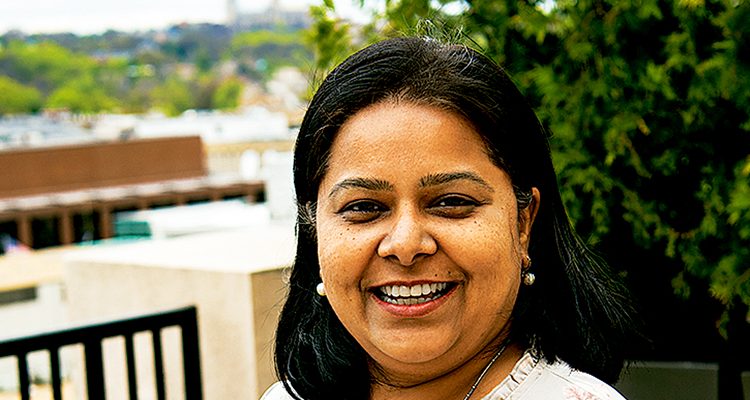Evidence Action is committed and always looks for evidence of a solution that works, and then turn it into a scalable solution for millions of people, informs Priya Jha, Country Director, Evidence Action to Prabhat Prakash in an exclusive interaction
What is Evidence Action’s vision for the initiative of Dispensers for Safe Water and Deworm the World Initiative and the rationale behind these?
In India, the Ministry of Health & Family Welfare leads the National Deworming Day (NDD) programme. As a technical partner to the Ministry, Evidence Action provides technical assistance to the national and state governments to implement, strengthen and sustain a high-quality NDD programme that leverages existing education and health infrastructure. The programme targets children and adolescents aged one to 19 years. Dispensers for Safe Water is a programme which provides a simple solution to the problem of unsafe water in rural and remote communities. Chlorine dispensers are placed in the immediate vicinity of wells and other water sources. Community members go to their water source to fetch water, place their bucket under the dispenser, turn the valve to dispense a correctly measured amount of diluted chlorine, and then fill the bucket with water. The chlorine disinfects the water as the community member is walking home, and by the time he or she arrives, much of the chlorine smell has dissipated and they are left with clean and safe water. Evidence Action is committed and always looks for evidence of a solution that works, and then turns it into a scalable solution for millions of people. We can measure self-reported diarrohea, and while we cannot measure actual diarrohea reductions due to the cost and complexity of direct measurement, our detailed models suggest that we avert nearly 450,000 cases of diarrohea per year and nearly 400 deaths of children under the age of five per year in the intervention areas.
How much has Evidence Action invested in the deworming initiative in India?
Evidence Action is the technical assistance partner to the Government of India and select states. It does not fund the Deworming programme. The Deworming programme is funded through government sources.
Is there an MoU with the government?
Evidence Action has an MoU with all the 11 states it works directly with for the NDD programme. With the GoI, there is not an MoU but we are recognised as the TA partner for the NDD programme.
How would you compare each state in terms of adopting the deworming initiative in India?
All 36 states and UTs in the country are mandated to implement the NDD programme, as per the frequency based on worm prevalence. As such, states budget for the same, plan, implement and monitor the programme and report the coverage to the GOI. There is no comparator though some states proactively undertake efforts to reach more children and engage with stakeholder departments. For instance, Rajasthan and Telangana engaged with private schools well ahead of others. States like Chhattisgarh proactively targeted children aged one to 19 years, using census population. Tripura reached out to children in brick kilns and from migratory populations as well as added some WASH initiatives at schools and anganwadis. Jharkhand consciously reached out to children in slums through a camp approach. So, each state has some specific initiative that they undertake.
How many schools have been a part of this initiative?
As of February 2019 round; 8.7 lakh anganwadi centres, 7.02 lakh government/ government-aided schools and 1.75 lakh private schools reported coverage of the NDD programme across 33 states/UTs. The target number of schools (government and private) is reviewed and updated before every NDD round. The number is validated through the coverage report prepared after every NDD round.
How is Evidence Action funded?
We have some committed organisations, individual philanthropists and others who support our evidence-based approach to programmes that have high impact, are scalable and reach millions.
How has the response been so far for this initiative?
Since its launch in February 2015, progress of NDD has been encouraging and it has gone from strength to strength. The programme targets to reach almost 26-30 crore children and adolescents twice a year (as per frequency based on worm prevalence) through NDD rounds. It is motivating to witness the coordination of efforts displayed by lakhs of teachers, anganwadi workers, ASHAs and ANMs across the states in the country. The programme has consistently improved, added new elements which have been instrumental in improving the overall programme implementation and performance. Another interesting development has been an understanding and acceptance among stakeholders about the contribution of deworming to overall nutrition efforts towards building of a healthy nation. There is growing evidence and understanding of parasitic intestinal worms and their impact on children and adolescents. The success and reach of the programme are based on inter-sectoral coordination and convergence.
How do you plan to scale it up?
The programme is already being implemented across the country with the frequency as mandated. With each NDD, efforts are being made to improve coverage of children- whether they are out of school, in other education streams like junior colleges, vocational training centers etc. The programme is aligned to the guidance of WHO on programmes for Soil transmitted helminths (STH) control and global targets. NDD aims for high quality and high deworming coverage consistently, with continued engagement with various ministries and departments converging for a fixed day programme.



